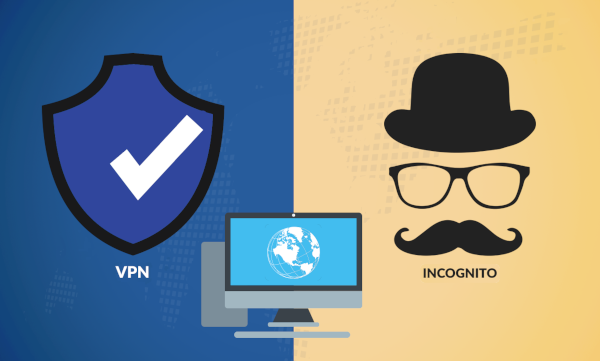
Users browse the internet anonymously for a myriad of reasons, including:
- protecting your privacy from marketing companies.
- hiding your browsing activities from other users on the computer.
- concealing your data from other entities on the internet.
- accessing websites that are unavailable in your country.
Browsers, such as Chrome, Safari, Firefox and Edge all offer private browsing. When the feature is at work, the browser does not save a record of the websites you visit, what you searched for, or save any of your site logins.
Privacy browsing also disables plugins that may be used to track your internet activity. But, plugins often serve a purpose while you are on the internet. So, disabling them can disrupt your convenient and efficient browsing experience.
Yet, as cybersecurity concerns rise, hiding your browser activity is only half the battle. You should also be aware that:
- your internet service provider (ISP) or network support department may be monitoring the sites you visit.
- the site you visited could be tracking your IP address to find out where you logged in from.
- if you are not on an encrypted site, a cyber bad guy could potentially read your data.
This is why many businesses and home computer users who want to preserve their privacy online need to look at using a VPN or Virtual Private Network. With a VPN, you have your own secure and private connection to the internet.
Online Privacy Advantages of a VPN
Consider the following advantages of having a VPN for your computer, smartphone, or tablet:
- A VPN encrypts your online activity. This means that no third party (company, government, or hacker) can spy on your activity as it is transmitted.
- When you connect, your IP address is masked. The VPN provides you with a new IP address, so you can’t be traced back to your home or business connection. You will only be traced back as far as your VPN provider.
- If a website or web service restricts access from certain countries you may be able to access that restricted content. Using a VPN can enable you to look like you are in a different country thus the website won’t know to block you.
Yes, the VPN provider could be recording your online activity (as any ISP might also do), but the most reputable providers make it a policy not to keep any activity logs for their users.
What Do You Want from Your Anonymity?
When deciding what method to use will depend on what you are trying to achieve. If you want your browser to not record what you are doing, using it in private mode (also called incognito mode in Google Chrome) will be fine.
If you want a private and secure connection that allows you to enjoy freedom and peace of mind online, then a VPN is a better option for you.
Need help in securing your online activity? Our experts can help you determine the best approach and implement the right strategy for you. Contact us today to find out more.

thanks david